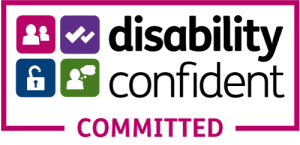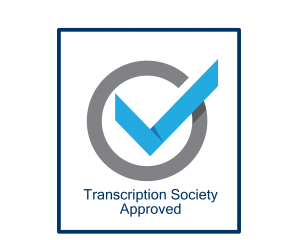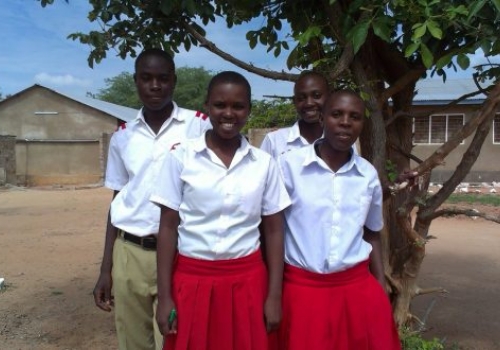We have been asked lots of questions about how to record interviews, what software and hardware to use, whether to stick to Zoom meetings, what effect face masks have on recording quality and more. Here is our guide to conducting face to face interviews effectively but safely during the Coronavirus crisis.
Can you record interviews wearing a face mask?
The problem with face masks, as so many interviewers are finding, is that they muffle the sound of a recording. In fact they muffle the sound so much you will probably find it hard to hear what the interviewee is saying even when sat opposite them.
Face masks are not really an option whilst you are actually recording, which is why you will see people with a face mask pulled down being interviewed on TV news programmes.
Wearing Visors – does it affect the recording quality?
Not as bad as face masks, visors will allow most of the sound to be detected on a recording, but the recording device will need to be placed very close to the speaker.
Sitting two metres apart – will this be OK?
Yes, but not in a coffee shop environment or anywhere else with a similar hum of background noise. You will probably need to find a very quiet room without any interference from external sources – we often find that researchers have not realised that the hum of an air conditioner or a fridge has become a central part of a recording, because the frequency of the sound has not really impacted on them during the face to face interview.
Make sure you put the recording device or phone equidistant between the interviewee and yourself. If they are wearing a visor test out the sound quality before conducting the interview. Is their voice clear enough to carry?
Can you ensure effective ventilation and a recording of sufficient quality?
One of the key parts to the government advice on ensuring safety during the Covid-19 crisis relates to ensuring adequate ventilation. Very often this is as simple as keeping the windows open in a room rather than closing them.
This of course has implications for the quality of any recording you make and it is important to test any recording made before you spend too long conducting research interviews. If you are in a building next to a main road with lorries trundling up and down, you may not be too bothered by them during the actual interview, but it is quite possible the trundling of lorries will drown out important answers from your interviewees. Similarly consistent noises may make transcription extremely difficult. Whilst TP Transcription and University Transcriptions make no extra charges for hard to hear recordings, this is why we spend a lot of time writing articles gently hinting at the need to minimise background noises!
Find a room that you can open the windows for without excessive background noise. Occasional sounds are fine – birds tweeting, people speaking as they pass, cars driving by. Sitting in a room with windows open next to pneumatic drills, lorries or market traders is really not recommended.
What is the best audio recording device?
This should really be – what is the cheapest option for recording interviews for transcription? The answer is to use your smart phone. The standard of recording is excellent on iPhones and most Android system phones. However, if you are thinking of purchasing a digital recording device we strongly recommend Olympus. In fact we recommend them so much we contacted them to ask for a referral link to get paid commission, but they declined! Olympus digital recorders are robust, easy to use and give you a high quality recording for a very low price. Top model at the moment (they seem to change them every few years to maintain the price) is the Olympus DM-720. Retail price seems to be around £130. A cheaper option would be to go onto eBay and look for stock of a slightly older model. An example would be the Olympus DS-3400 currently on sale on eBay for £30 (second hand).
If using my iPhone, what software should I use to record?
Use the Apple pre-installed “Voice Memos”. To see a guide on how to use the Voice Memos app, please click here.
If using an Android phone, what software should I use to record?
Please click here to read our recent article on how to use an Android operating system phone to record.
Signing waivers for liability
We have been asked a few times whether it is ethical to conduct interviews after asking the participants to sign a waiver to exclude any liability if they were to become infected following the interview.
This is a question for your university or organisation’s legal department. Some universities and companies are going to be very reluctant to allow you to conduct face to face interviews and others may well start exploring the option of asking participants to sign waivers. We have not been told of any who have chosen this route yet.
Is it fair to ask participants to travel to be interviewed?
Quite possibly not. It may be that for the next 12 months or so, interviewers will need additional funding to make more of a concerted effort to travel to the interviewee’s local area in order to conduct interviews. Interviewers may well feel a degree of guilt in asking potential interviewees to climb onto public transport to travel to them in order to complete research projects. Perhaps the better option is to ask for funding to enable you to travel in order to minimise the risks to the interviewee. This depends of course on your own situation.
Sanitising – what will need cleaning between interviews?
We think you need to sanitise everything, including the voice recorder. Particularly the voice recorder if it is within two metres of the participants. When people are being interviewed they naturally attempt to project their voice forwards. Follow government guidelines on sanitisation procedures – don’t forget to wipe down all the surfaces including table tops, chairs, door handles.
Protect yourself
Don’t forget in all of this that if you are conducting face to face interviews you also need to protect yourself. Wash your hands thoroughly between interviews and even during interviews, maintain a distance from your interviewees and only conduct the interviews in an environment you feel safe in yourself. After all, if you are sat in a room nervously looking at the participants and thinking more about how to avoid infection, it is hardly likely to be a very useful interview.
Summary
As we get back to the new normal, conducting interviews are going to return to pre-Covid 19 levels and possibly more, as everyone plays catch-up with their projects. Our key advice is to make sure you have protected yourself and quickly test the quality of the recording in whatever environment you decide to conduct the interview before you start.









